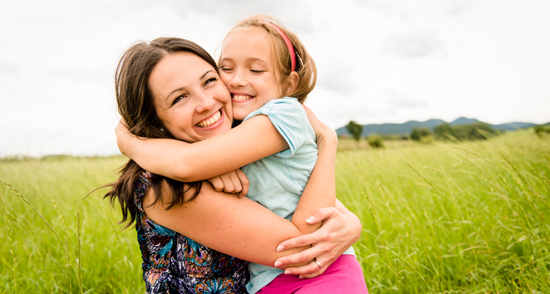It's a New Day in Public Health.
The Florida Department of Health works to protect, promote, and improve the health of all people in Florida through integrated state, county, and community efforts.
Helping Children Cope During and After a Disaster
Contact Us
- 904-253-1270
-
Fax
904-253-2741 -
Mailing Address
921 N. Davis St.
Bldg. A, Suite 251
Jacksonville, FL 32209
Children’s fears can be magnified by their imaginations, and adults should take their feelings seriously. You can reassure a child who feels afraid with your words and actions.

Impacts from a disaster extend beyond what you can see. It can create a great amount of stress and anxiety for children. They may not fully understand what is going on, so it’s important to help them cope with any stress they may have.
Download the Helping Children Cope fact sheet.
DOH-Duval recommends assembling a kit for your child, including:
- Any medications they are taking
- A few favorite books, crayons, and paper
- Puzzles, a board game, deck of cards
- Two favorite small toys, such as a doll or action figure, a stuffed animal
- Favorite blanket, pillow
- Pictures of family and pets
- Other special items that will comfort children
Child (and adult) immunizations should be up-to date to protect from vaccine-preventable diseases.
Keep a copy of complete immunization histories in your disaster kit attached to the family emergency information, including the date of everyone’s last tetanus-diphtheria vaccination.
The following tips can help reduce stress before, during, and after a disaster or traumatic event:
- BEFORE
- DURING
- AFTER
- Assure your child that you are prepared to keep them safe.
- Review safety plans before a disaster or emergency happens. Having a plan will increase your child’s confidence and help give them a sense of control.
- Stay calm and reassure your child.
- Talk to your child about what is happening in a way that they can understand. Keep it simple and appropriate for your child’s age.
- Give your child opportunities to talk about what they went through. Encourage them to share concerns and ask questions.
- Encourage your child to take action directly related to the disaster so they feel a sense of control. Volunteering to help community or family members in a safe environment is a good way of getting them involved. Children should NOT participate in disaster cleanup activities for health and safety reasons.
- Because parents, teachers, and other adults see children in different situations, it is important for them to work together to share information about how each child is coping.
- Help your children to have a sense of structure, which can make them feel more at ease. Once school and child care resume, help them return to their regular activities.
Practice Positive Parenting
- Set a good example by managing your own stress through healthy lifestyle choices, such as eating healthy, getting enough sleep, and avoiding drugs and alcohol.
- Practice disciplining your children in a calm, thoughtful way.
- Give yourself time to cool off rather than punishing in anger.
- Show your children ways that conflicts can be resolved with words, rather than hitting or hurting.
- Talk with your children and listen carefully to what they say about their experiences.
- Be alert to changes in their behavior or emotions and talk calmly with them if you are concerned.
Resources
- Call 2-1-1
- If you need assistance locating long-term mental health resources, talking through a problem, or exploring mental health treatment options, call 211 to speak with a live person who can help. 211 is available 24 hoursa day to listen and provide emotional support, crisis counseling, suicide prevention, and information and referrals. Conversations are confidential.
- Text the word 'Home' to 741-741
- Crisis Text Line provides free, 24/7 mental health support via text message.
- State Assistance Information Line (SAIL): 1-800-342-3557
- FloridaDisaster.org
For more information, contact the Florida Department of Health in Duval County (DOH-Duval), Office of Emergency Preparedness at 904-253-1270.



Connect with DOH